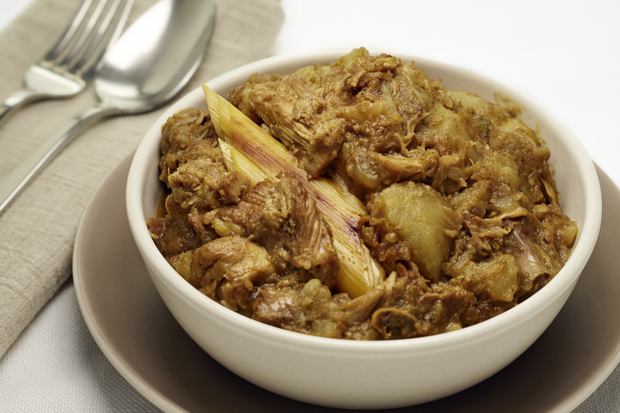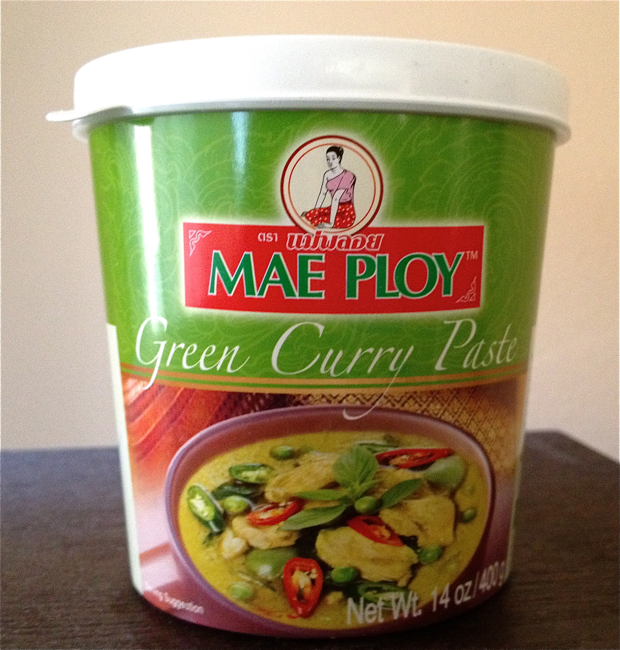See How Homemade Curry Paste Livens Up Dishes Like My Malaysian Chicken Curry
One of the most essential ingredients in my kitchen is homemade curry paste. For me, dishes made from a freshly ground curry paste are irresistible. The pastes add amazing depth of flavor to endless curries and fragrant stir-fries. The foundation on which most Southeast Asian recipes are built, a curry paste is the equivalent to what sofrito and mirepoix are to Latin and French cuisines.

Malaysian Chicken Curry
Curry pastes are a moist blend of grounded aromatics, herbs and spices. Varying from regions within each country, there are endless recipes for curry pastes that can range from fiery hot to mildly spicy – with sweet/citrusy to warm spicy notes. As with wine, curry pastes can have an amazing range of flavors with subtle nuances.

Rempah
The heart of every curry dish specifically in Southeast Asian cooking is a curry paste called rempah. Most Asian home cooks agree that curry pastes always taste better than store bought ones, especially if pounded in a mortar and pestle. No question, pounding fibrous ingredients like Thai ginger, lemongrass, shallots or chilis is an upper body workout, but it delivers the best results for texture and flavor. The second best thing is using a food processor to make the paste. A machine tends to shred the aromatics, so adding a bit of water helps turn the ingredients into a smooth paste.
Here I show you my technique for using a mortar and pestle:
I always make a point to make lots of curry paste and store it in small portions in the freezer. They last for several months and whenever you’re have a craving for a Thai or Malay curry, you can fry up the curry paste straight from the freezer and cut your cooking time by half … love that!

Mae Ploy Curry Paste
When all else fails, there’s always Mae Ploy brand curry pastes in my pantry (even though store bought brands are hard to beat homemade and controlling the amount of heat or salt that goes into your dish may be tricky). That said, if I have the ingredients on hand, I liven up the pre-made paste by adding fresh Thai ginger, garlic, shallots or lemongrass. By using the store brand along with fresh aromatics, I can make a tasty and quick curry or sauce – even on a school night.
So make a small investment towards a stone mortar and pestle. Trying your hand at pounding your own curry paste will produce results nothing short of rewarding. Below is one of my favorite curry dishes from my Farina’s Asian Pantry App, Malaysian Chicken Curry which you may want to try your homemade curry with. It’s a one pot, easy recipe that will provide a spicy yet hearty meal. Enjoy!
Malaysian Chicken Curry (Makes 4 servings)
Ingredients
3 lbs chicken thighs, with the bone, cut into 4 inch pieces
2 stalks lemongrass, trimmed, smashed and left whole
3 to 4 medium potatoes peeled and cut into 2 inch pieces
1 cup coconut milk
2 1/2 cups water
2 star anise
3 cardamom pods, cracked with the flat side of a knife
3 tablespoons curry powder, preferably “Madras”
1 teaspoon salt
1/4 teaspoon black pepper
canola oil for frying
Aromatic paste
4 to 5 large shallots, peeled and chopped
3 cloves garlic, peeled
1 (2 inch) piece fresh ginger, peeled
Instructions
Season the chicken in a large bowl with the salt and pepper and set aside.
In a mortar and pestle (or using a blender or mini-food processor) grind the ingredients for the aromatic paste until smooth. Set aside.
Heat a large Dutch oven or heavy bottom pan, heat 2 tablespoons oil over medium high heat and sear the pieces of chicken until lightly brown. Transfer the chicken to a plate and pour off most of the oil, leaving approximately 2 tablespoons in the pan.
Over medium heat, fry the aromatic paste until golden brown, about 5 minutes. Stir in the star anise, cardamom and lemongrass and fry until fragrant, 2 minutes. Add the curry powder and cook for another few minutes. Pour in the coconut milk and 2 1/2 cups of water. Bring the mixture to a boil and then reduce the heat to low and simmer for 5 minutes. Transfer the chicken pieces back to the pot, cover with a lid and continue to simmer for 45 minutes to an hour. Once the meat is tender, stir in the potatoes and simmer for another 25 to 30 minutes. Season to taste with salt and serve warm with rice.




